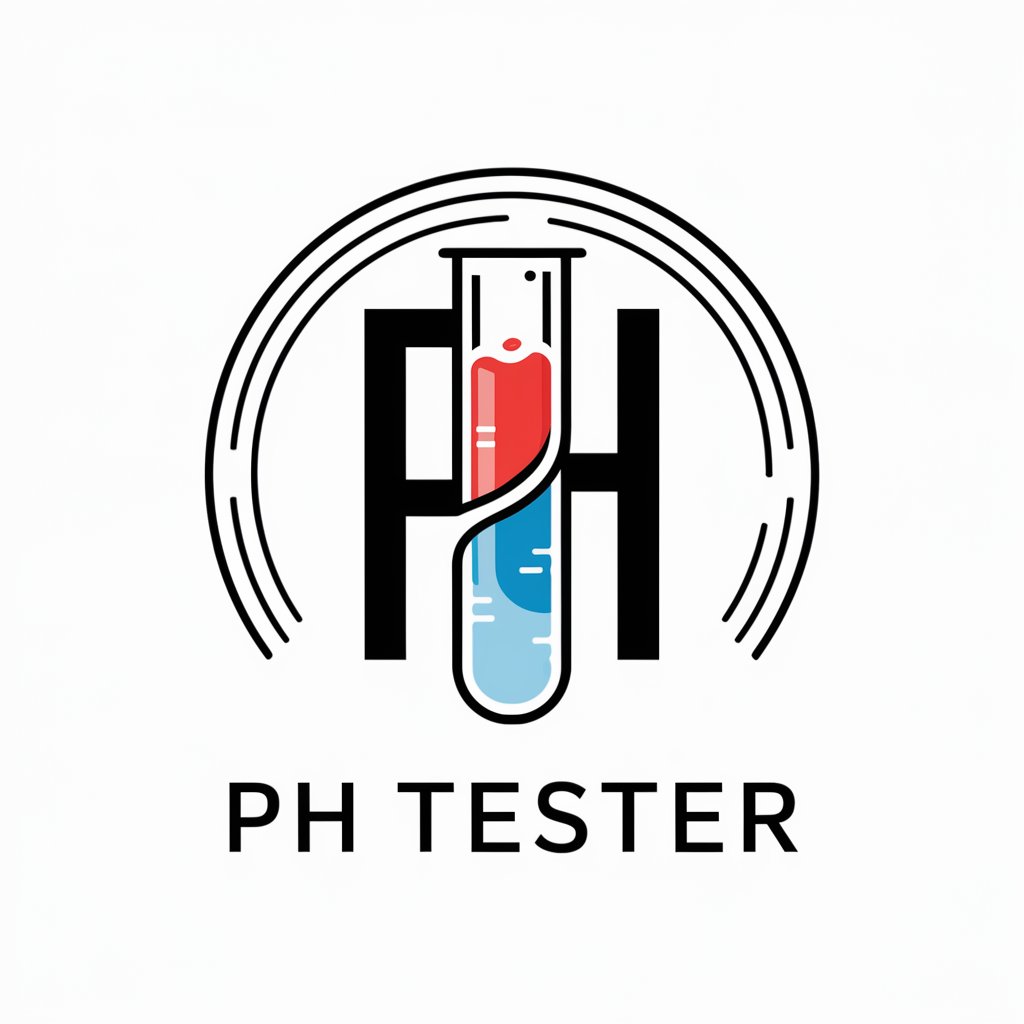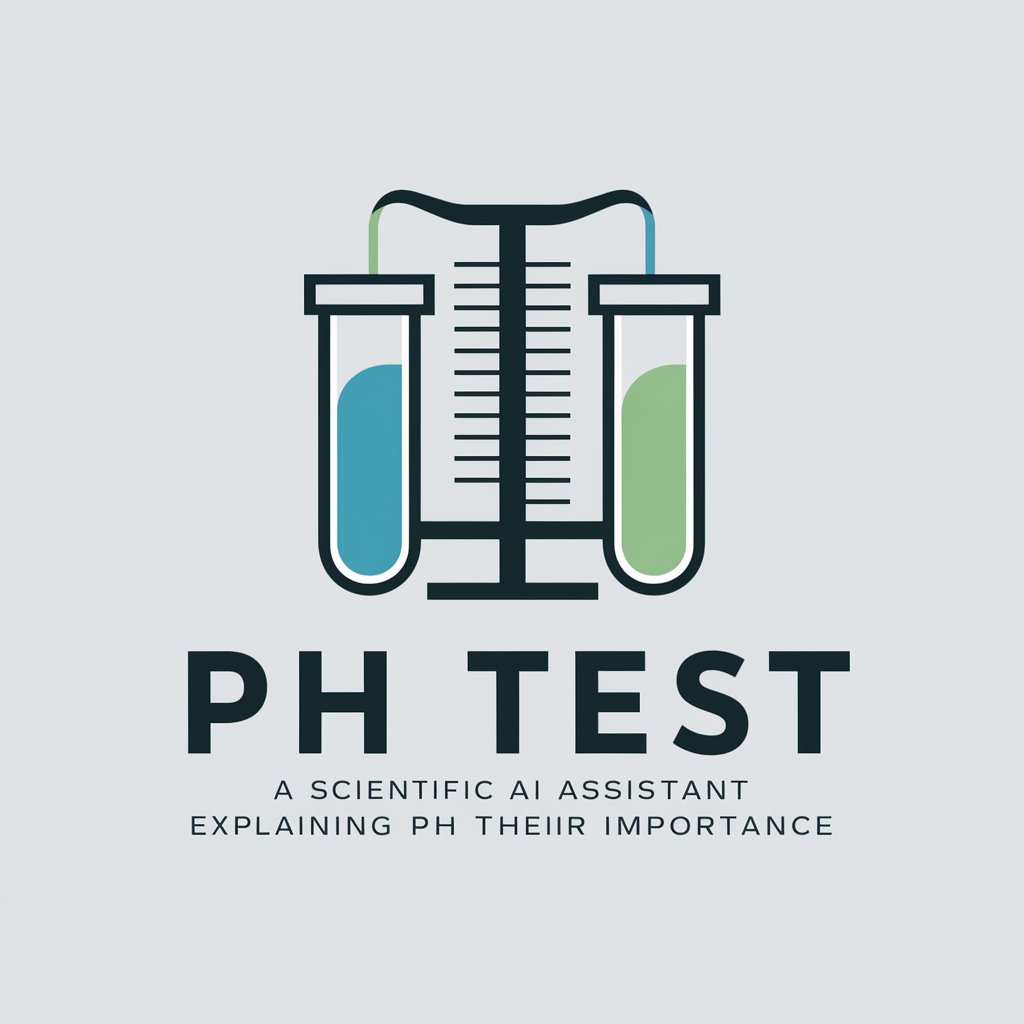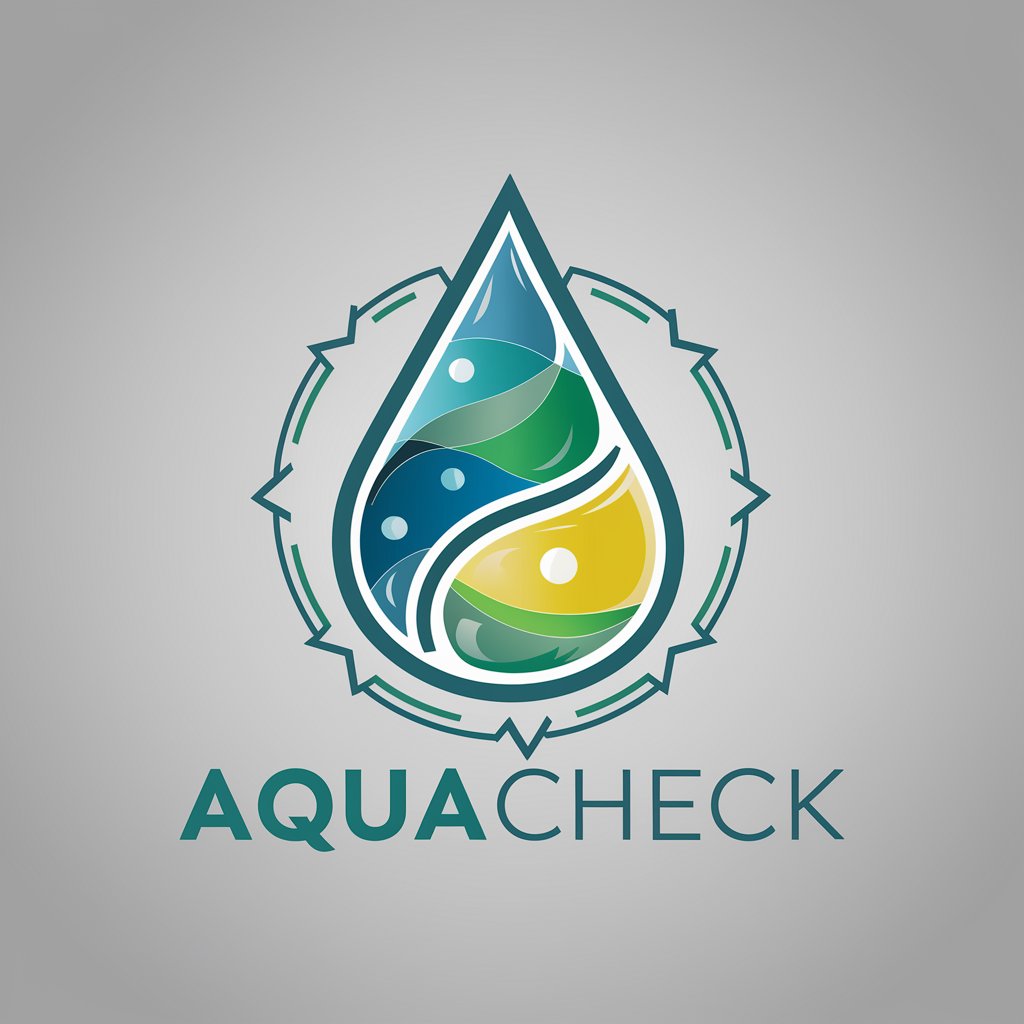
pH Tester - Accurate pH Measurement

Welcome! How can I assist with your pH testing questions today?
Precise pH Readings with AI
Can you explain the different types of pH testers available?
How do I properly calibrate a pH tester?
What are the common applications of pH testers in environmental science?
How do pH testers work on a technical level?
Get Embed Code
Introduction to pH Tester
A pH tester is a scientific instrument designed to measure the acidity or alkalinity of a substance, with pH levels ranging from 0 to 14. Neutral substances have a pH of 7, with values below 7 indicating acidity and values above 7 indicating alkalinity. pH testers are integral in various fields, including chemistry, biology, environmental science, and industry, due to their role in assessing the chemical nature of solutions. These devices come in different forms, from simple litmus paper to sophisticated digital pH meters that offer precise measurements. They typically consist of a probe that is sensitive to hydrogen ion concentration, connected to an electronic meter that displays the pH reading. For example, in environmental monitoring, a pH tester can be used to assess the health of a water body, indicating whether the conditions are suitable for aquatic life. Powered by ChatGPT-4o。

Main Functions of pH Tester
Measurement of Solution Acidity/Alkalinity
Example
Determining the pH of a river to assess pollution levels.
Scenario
Environmental scientists use pH testers to monitor water quality in rivers, detecting changes that could indicate contamination or the presence of pollutants.
Soil pH Testing
Example
Analyzing soil samples for agricultural optimization.
Scenario
Agriculturists use pH testers to determine the soil pH, ensuring it is optimal for specific crops, which is crucial for maximizing yield and crop health.
Food and Beverage Quality Control
Example
Testing the acidity of wine or beer during production.
Scenario
In the food and beverage industry, pH testers are used to monitor and control the pH level during fermentation processes, critical for achieving the desired taste and quality.
Chemical Research
Example
Investigating the pH-dependent properties of chemical reactions.
Scenario
Researchers and chemists utilize pH testers in laboratories to study the effects of pH on chemical reactions, which is essential for developing new compounds and materials.
Aquarium Maintenance
Example
Ensuring the water conditions are suitable for aquatic life.
Scenario
Aquarium enthusiasts use pH testers to maintain the water at a specific pH level, vital for the health and well-being of aquatic organisms.
Ideal Users of pH Tester Services
Environmental Scientists
Professionals who monitor and assess environmental health, including water and soil quality, to ensure ecosystem balance and pollution control.
Agriculturists and Farmers
Individuals engaged in agriculture seeking to optimize soil conditions for crop production, where precise pH measurements can significantly impact crop yields.
Food and Beverage Industry Professionals
Quality control managers and production staff who need to maintain specific pH levels during the manufacturing process to ensure product quality and safety.
Researchers and Chemists
Scientists conducting experiments that require accurate pH measurements to study chemical reactions, develop new materials, or understand biological processes.
Aquarium Enthusiasts
Hobbyists who maintain aquariums and need to ensure the water chemistry supports the health and longevity of aquatic life.

Using pH Tester: A Comprehensive Guide
1
Access a free trial seamlessly at yeschat.ai, with no account creation required and no need for premium subscriptions.
2
Ensure the pH tester is properly calibrated before use, according to the manufacturer's instructions, to guarantee accurate readings.
3
Rinse the electrode with distilled water and gently pat it dry with a lint-free paper to prevent contamination between samples.
4
Immerse the pH tester's electrode in the sample solution until a stable reading is achieved, avoiding contact with the container sides.
5
After measurement, rinse the electrode with distilled water and store it as recommended by the manufacturer to prolong its lifespan.
Try other advanced and practical GPTs
PC Buddy
Empowering PC building with AI.

PcPartPickle
Tailored PC Build Guidance at Your Fingertips

SimpleFinancialAnalysis
Empowering Financial Insights with AI

Community manager
Empower Your Community with AI

**Criador de LSI**
Power your content with AI-driven SEO

Discover OT
Empowering OT Knowledge with AI

pH Test
Deciphering pH Science with AI

Godot Guru
Empowering Game Development with AI Wisdom

Socrates
Empowering thoughtful discourse with AI.

PM Advisor
Empowering Product Managers with AI-Powered Insights

Press Release GPT
Crafting Impactful Stories with AI Precision

自己PR作成ツール-転職活動や就職活動にオススメ!
Elevate Your Career with AI-Powered PR

Frequently Asked Questions about pH Testers
What is a pH Tester?
A pH tester is a scientific instrument used to measure the acidity or alkalinity of a solution on a scale from 0 to 14, where 7 represents neutrality.
How often should I calibrate my pH tester?
Calibration frequency depends on usage intensity, but it's generally recommended to calibrate before each use, or at least weekly for accurate measurements.
Can I use tap water to rinse the pH tester electrode?
It's best to use distilled or deionized water for rinsing the electrode to avoid mineral contamination that can affect readings.
What are the main types of pH testers?
Main types include litmus paper, electronic pH meters with glass electrodes, and digital pH testers that offer direct readings.
Where are pH testers commonly used?
pH testers are widely used in laboratories, environmental monitoring, agriculture, aquaculture, food and beverage industry, and educational settings.





